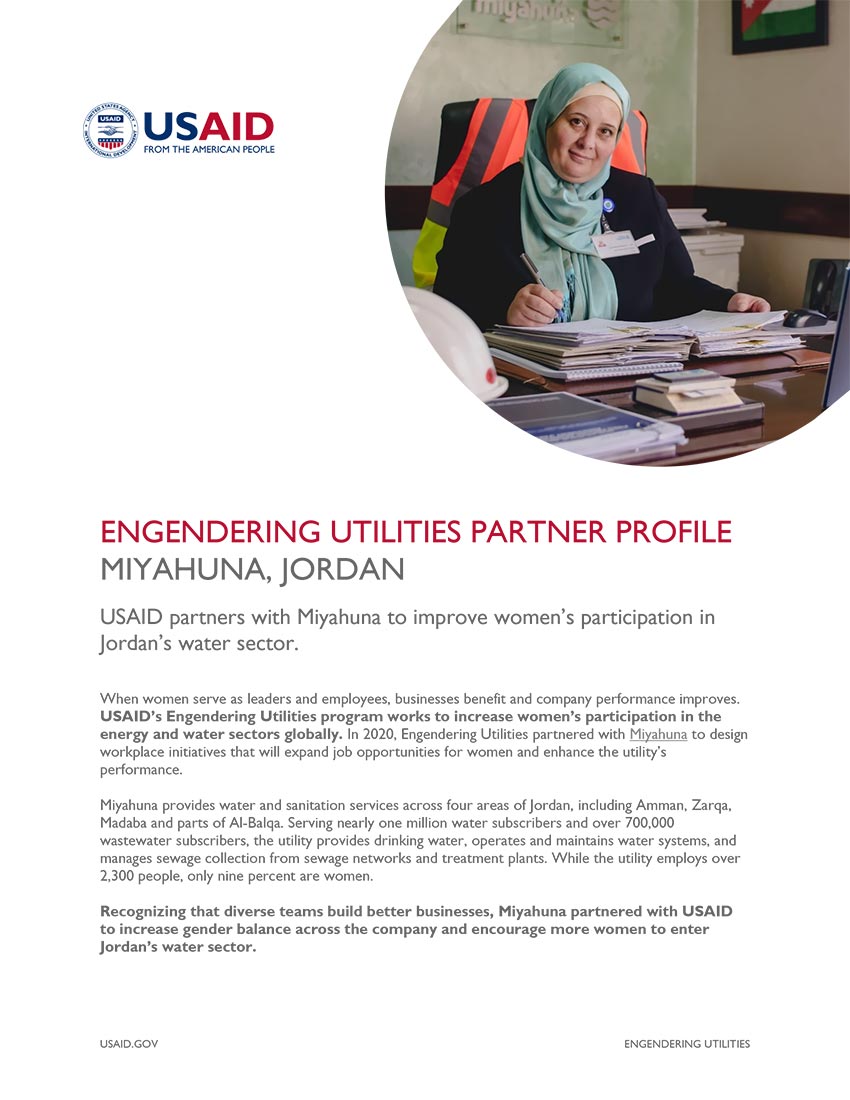- Energy Home
- How We Work
- Programs & Initiatives
- Smart Utilities
- Asia EDGE
- Auction Design Support to Colombia
- Energy Auctions for Kazakhstan’s Green Economy
- Energy Efficiency for Development
- Engendering Utilities
- About
- Business Case
- Approach
- Partners
- OSHEE, Albania
- SONABEL, Burkina Faso
- EDESUR, Dominican Republic
- DELSUR, El Salvador
- EEU, Ethiopia
- Energo-Pro, Georgia
- GRIDCo, Ghana
- BRPL, India
- TPDDL, India
- EDCO, Jordan
- IDECO, Jordan
- Miyahuna, Jordan
- KenGen, Kenya
- Kenya Power
- KOSTT, Kosovo
- LEC, Lesotho
- LEC, Liberia
- EGENCO, Malawi
- EDM, Mozambique
- EKEDC, Nigeria
- IBEDC, Nigeria
- ISWSC, Nigeria
- EVN, North Macedonia
- LASURECO, Philippines
- ZCWD, Philippines
- REG, Rwanda
- OFOR, Senegal
- Senelec, Senegal
- EVN, Vietnam
- Resources
- Stories
- Institutional Framework for Auctions in Mexico
- Powering Agriculture
- The USAID-NREL Partnership
- Scaling Up Renewable Energy
- EmPOWERing Women and Girls
- Competitive Energy Procurement
- Toolkits
- Monitoring & Evaluation
- Resources
- Stories
Speeches Shim
Engendering Utilities Partner Profile
Miyahuna is a water and sanitation services company serving nearly one million water subscribers and over 700,000 wastewater subscribers. Nine percent of the utility’s 2,300 employees are women.
Jordan, a middle-income country, has limited natural resources and is one of the most water-scarce countries in the world. Rapid population growth, changing rain patterns, and drought have put a strain on the country’s water supply, and groundwater in Jordan is used twice as quickly as it is recharged. While the water supply in Jordan is safe, the supply is intermittent and the use of rooftop tanks to store water—which is delivered once a week on average—is common.
Despite Jordan’s remarkable achievements in gender equality in health and education, cultural beliefs, and practices, limited gains have been made in women’s economic empowerment. There is parity in primary and secondary school enrollment and completion rates among boys and girls, and overall, girls out-perform boys in school, demonstrating higher standardized test scores than boys. Despite this, only 14 percent of women in Jordan participate in the formal labor force. In 2019, only two percent of firms had a woman as a top manager.
USAID is supporting Miyahuna in its goal of increasing gender equality across the company’s business practices by providing change management coaching and leadership training, conducting a baseline assessment to identify gaps and opportunities for gender equality, and developing a strategic plan with Miyahuna to facilitate the company’s gender equality goals.
In 2018, Miyahuna participated in a comprehensive gender study of women working in Jordan’s water sector, as part of the USAID Water Management Initiative (WMI). The results of the study set the foundation for the first gender policy to be proposed at the national governmental sector level. This policy, titled the Water Sector Gender Policy, was formally adopted into Jordan’s National Water Strategy in June 2020.
USAID will support and accelerate gender equality initiatives already underway at Miyahuna and support the utility to implement corporate policies and practices that reflect new national gender policies related to the water sector. Miyahuna staff have identified many opportunities for improving gender equality at the utility, including:
- Improving Training Opportunities for women, including shifting the hours of training to enable more women to benefit from the career growth opportunities provided by the utility.
- Enhancing Maternity and Paternity Benefits, and the establishment of onsite daycare as a preferred alternative to daycare allowances.
- Changing Corporate Culture to create more acceptance of women in both leadership and technical roles. Miyahuna will also place a strong emphasis on engaging influential male leaders as champions of gender equality through the development of a male engagement strategy.


Comment
Make a general inquiry or suggest an improvement.